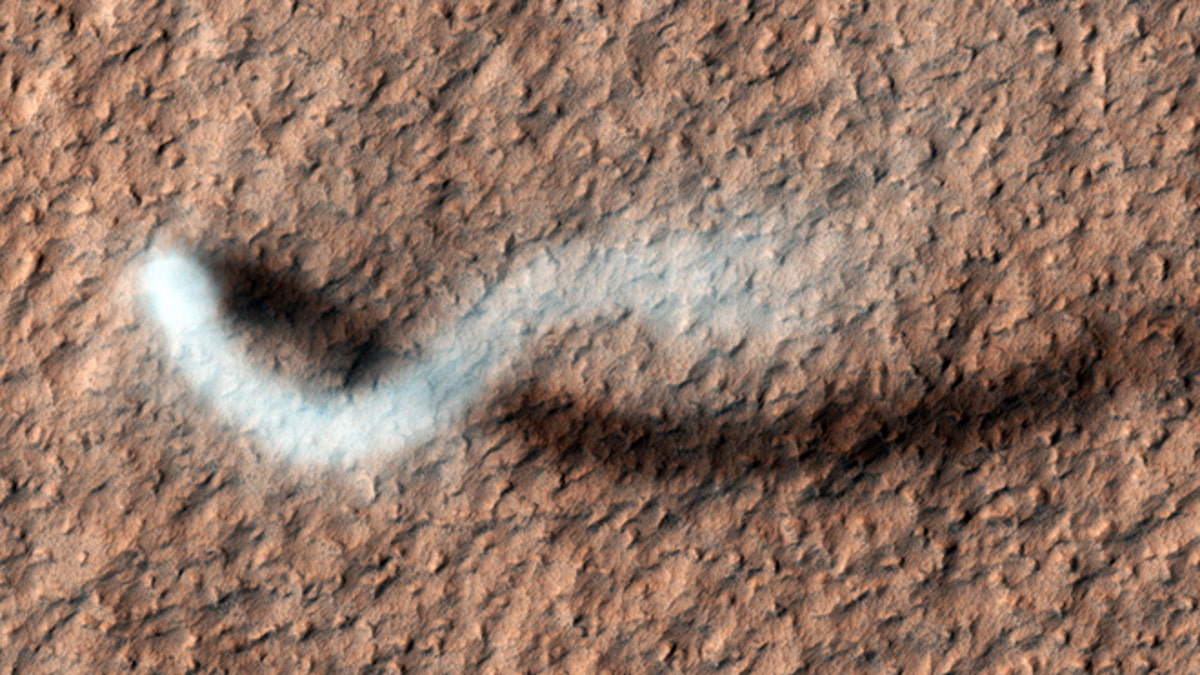
A towering dust devil casts a serpentine shadow over the Martian surface in this stunning, late springtime image captured recently by NASA. But how would it sound? (NASA/JPL/University of Arizona)
Is space the final “frontEAR”?
Despite decades of space exploration and glorious, high-resolution images of the other planets in our solar system, we have no evidence of the sound of other planets. Several planetary probes have carried microphones; none has successfully listened to the sound of another world.
Scientists with the University of Southampton aim to fix that.
Professor Tim Leighton and colleagues from the University of Southampton used the tools and techniques of physics and mathematics to create the natural sounds of other worlds, from lightning on Venus to whirlwinds on Mars and ice volcanoes on Saturn's moon, Titan.
[pullquote]
On Venus, humans sound like bass Smurfs," said Leighton, who works in the University's Institute for Sound and Vibration Research. "The pitch of your voice would become much deeper. That’s because the planet's dense atmosphere means that the vocal cords vibrate more slowly through this 'gassy soup'.”
Using unique software, Leighton has transformed the sound of a voice on Earth to reveal what it would be like on Venus, Mars, and other planets. The sounds will be added to the 'Flight Through the Universe' show this weekend at the Astrium Planetarium at the Intech Science Center near Winchester, United Kingdom.
"Hearing the sounds communicates ideas about the different atmospheres and highlights the sheer ‘alienness’ of the other worlds in our solar system,” said Jenny Shipway, planetarium manager at Intech who will present the show. “There is interest in this software from other planetariums worldwide."
Professor Leighton, who has been working on the sounds of space for the last ten years, worked with students Nikhil Banda and Benoit Berges and colleague Paul White to extend the science to the atmospheres of Mars and Venus.
They have come up with the sounds of thunder on Mars, Venus and Titan, as well as duststorms on Mars and very cold cryo-volcanoes on Titan. Over the last few years, Professor Leighton has also worked with of Dr Andi Petculescu at the University of Louisiana in Lafayette, and together they have rigorously examined how voices and musical instruments would sound on other worlds.
"I'm interested in what music would sound like in space. If astronauts are based on Mars for several months, they might just take musical instruments along, or build one there. What would they sound like?” Leighton wondered.
"This is the real deal -- it's as close as we can get to the real sound of another world until a future probe or astronaut actually goes there and listens to what it really sounds like," Leighton said.
"As a scientist, I reckon the most exciting thing to work on is a completely new idea, something that's never been done before."








































